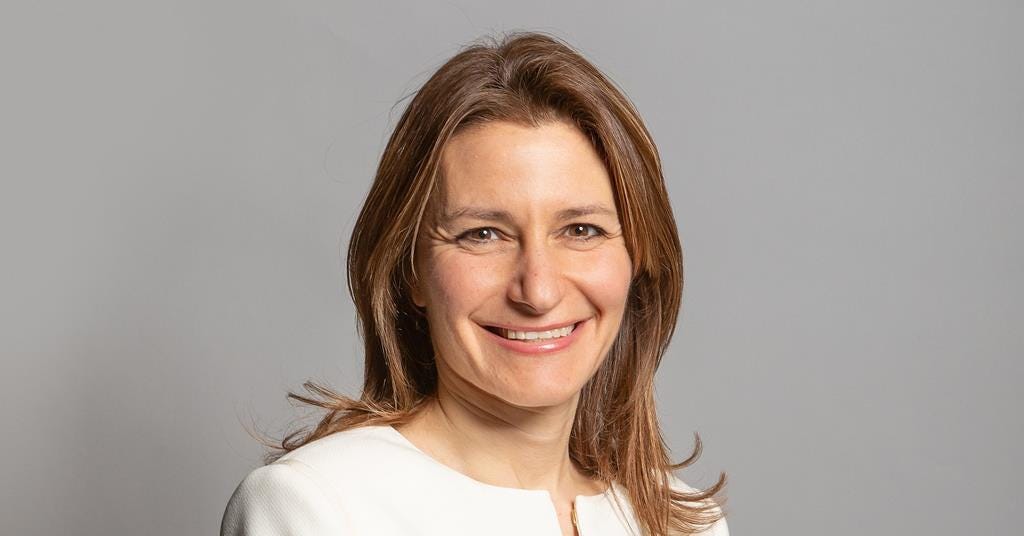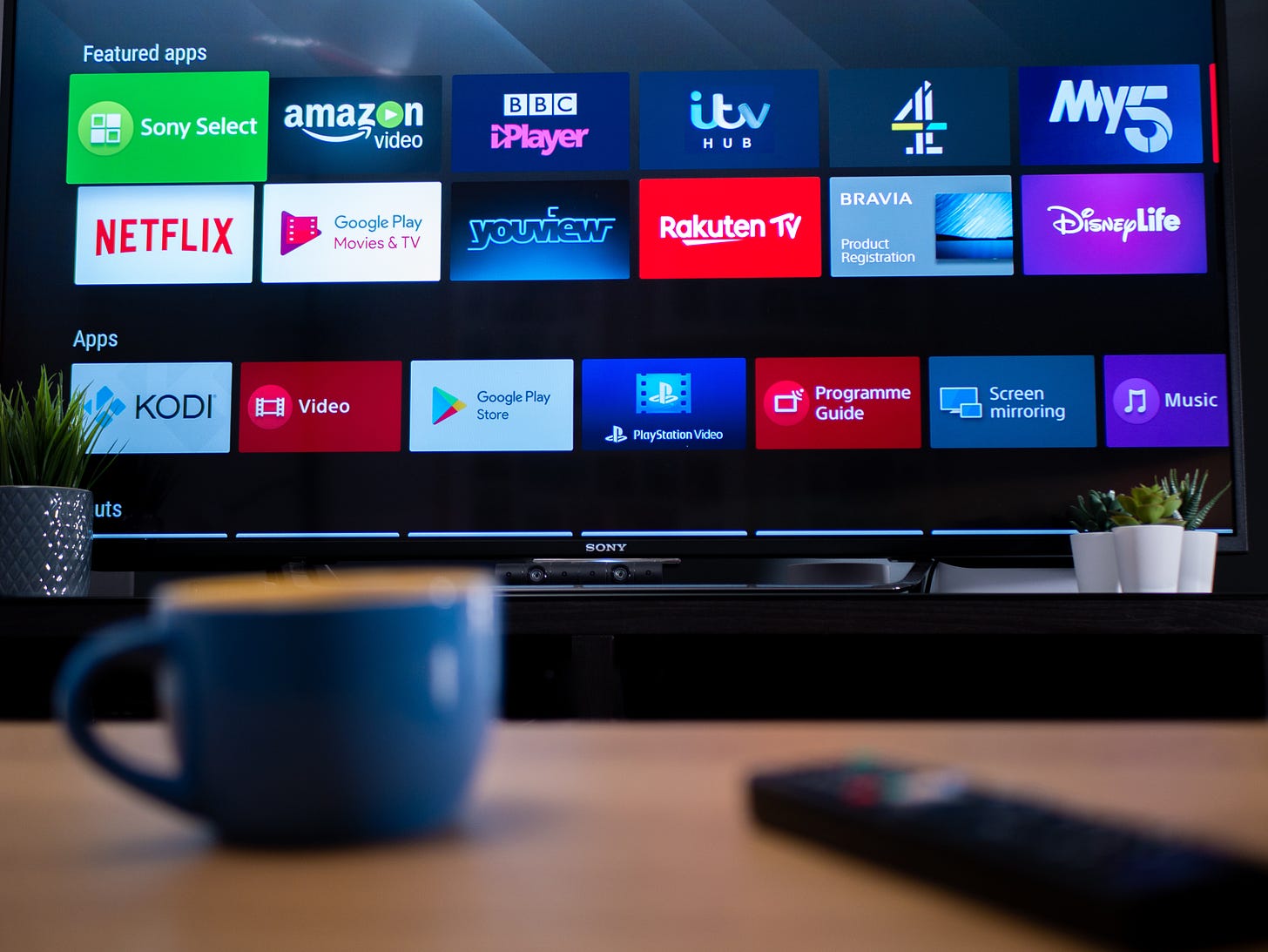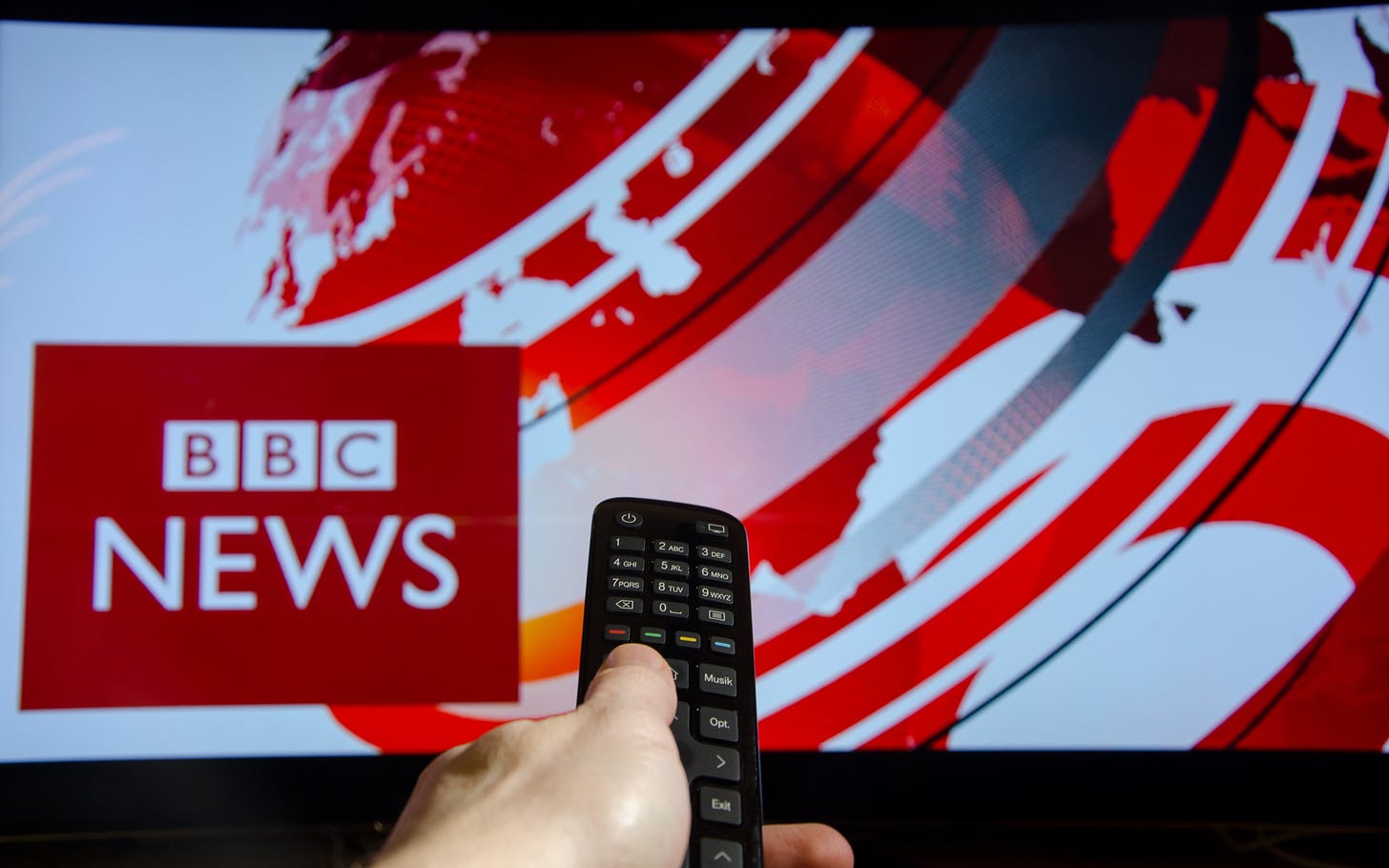Reasons to be positive about TV
ScreenPower: where the screen industries meet politics and power
Hello and welcome to ScreenPower: a newsletter from the intersection of the UK’s screen industries, with Westminster and Whitehall (and beyond).
First, thank you for the positive response to the first edition of ScreenPower. It’s great to have readers from across the industry - as well as Government, Parliament and the media - and people who are simply interested in this world. I hope you’ll find ScreenPower useful, interesting and worth your time.
Last week was a grim one for parts of the UK’s TV industry - so this week’s ScreenPower brings you three reasons to be positive about TV, as well as some important things you may have missed. Plus which politician recommends you watch Top Boy if you’re not already…
Reason to be positive #1:
Sky predicts sector growth of £10bn over the next decade
Sky published a report last week with lots of great stats on viewing habits and the economic value of the sector. The headline was their estimate that “the British media and entertainment sector will be worth an additional £10 billion per annum by 2033 – rising from £43 billion in 2021 to £53 billion in 2033”. They say this could translate to nearly 40,000 additional jobs.
Big but: Sky say that growth will, in part, depend on “a supportive policy landscape”. They listed five policy proposals for government - three of which caught my eye…
Rethink the ‘Studio Tax’:
Some of Britain’s biggest film studios are seeing huge increases in the amount of business rates they have to pay on their premises. The FT wrote about this in January, and Deadline reported in April that Pinewood Studios has had its rateable value raised FOURFOLD to £16.2M. The Valuation Office Agency (VOA) is in charge of business rates - and, as part of HMRC, is more resistant to political intervention than policy areas that are more centralised. However, I know this is on the radar in Whitehall, so a more sensible outcome may yet be on the horizon. I’ll return to this in the coming weeks.
Keep the UK’s film and high-end tax reliefs globally competitive…
…‘by committing to a regular benchmarking exercise that assesses UK incentives against competing jurisdictions.’ This is a really important point. As I touched on in the last edition, the UK’s tax reliefs for the screen sector have been hugely successful in attracting major studios to make films and TV shows here. So successful in fact, that our model has been copied elsewhere - a number of other countries have caught up and now have more attractive rates (Sky’s report cites Austria, Ireland and Hungary - but there are others). The UK’s attractiveness is about more than just the headline rate - but our film and high-end TV tax reliefs are now more than a decade old - so ‘regular benchmarking’ sounds like a good way of ensuring they continue to serve their purpose in a competitive environment. That said, last month’s stats from HMRC revealed the High End TV tax relief is more popular than ever - take-up increased 78% from 2019/20 to 2021/22.
Address skills shortages in the sector:
This has become more complicated by current sector uncertainty, but skills and workforce gaps remain in film and TV production, including at mid/senior level. Sky’s main ask is to reform the Apprenticeship Levy, making it more flexible. This is badly needed - as I saw when I was at HMT, and can see even more clearly through my current work with ScreenSkills. A senior industry exec told me recently that the UK’s attractiveness for film and TV production rests on three pillars: studio infrastructure, tax attractiveness and skills. The area that needs the most attention right now - for the industry as a whole - is skills.
Reason to be positive #2:
The Government wants to protect terrestrial TV
Culture Secretary Lucy Frazer told the audience at the Royal Television Society conference in Cambridge that “we want terrestrial television to remain accessible for the foreseeable future”. She used her speech to launch a review into the ‘Future of TV distribution’, alongside a call for evidence from Ofcom, with the emphasis very much on access: “we’re not going to pull the rug from under the devoted audiences of Freeview channels.”
Why is this good news? Because credit where credit’s due - it’s encouraging to see the Government take a sophisticated approach to television and to Public Service Broadcasting - rather than one that focuses solely on modernising and keeping pace with streamers (important though that is). It’s an unfashionable view, but I’m a big believer in linear. It still has a commercial value - but its societal value is less talked about. At the risk of getting sentimental, for millions of people, (linear) TV is company. For some, it’s a lifeline - and I suspect many of those people are watching on terrestrial. Sure, there’s likely some electoral politics at play here - and it has a ‘triple-lock’ air about it - but it’s good to see the Government recognise the value of linear, and the need to maintain broad access for broad-casting.
Not everyone will love this: Over time, it could become costly for broadcasters to be forced to fund digital terrestrial transmission as well as streaming over the internet - but in any case, the Government has already legislated for terrestrial TV to continue transmission until at least 2034.
MORE good news for linear: BBC, ITV, Channel 4 and Channel 5 have jointly announced that next year they will launch Freely - a platform for streaming live linear TV channels on a smart TV. This means that if you only have broadband TV, you’ll be able to stream TV channels (e.g. BBC One, Channel 4) far more easily than you can now - and without going into the individual apps. Together with the safeguards for those on terrestrial, this sounds really positive. It’s also good to see a joint PSB project get off the ground - and one that has the potential to put “free TV at the centre of the streaming age”. I’ll stop banging on about linear now. (I ❤️ linear).
Reason to be positive #3:
Warner Bros. Hertfordshire Studios to expand
‘Warner Bros. Studios Leavesden’ - the Hertfordshire studio complex where much of the Barbie movie was filmed - is set for a big expansion, increasing production capacity by 50%.
The detail: Warner Bros. Discovery (WBD) plan to boost the site by adding 10 new sound stages, and an additional 40,000 square feet of production and support space - potentially creating up to 4,000 jobs directly and indirectly.
For real: If you work in the sector, you can probably take that in your stride - but I feel like that line is worth repeating: a studio complex just outside Watford hosted the highest grossing movie of the year so far, and will become the main hub for DC Studios.
I had dinner with a friend in a completely different sector last night and told her this - she didn’t believe me. Had to google it. (I’m great dinner company).
Confidence boost: Chancellor Jeremy Hunt - who was in California for meetings with tech firms and media companies - called the plans “a huge vote of confidence in the UK”.
It’s certainly a vote of confidence in the current context - with WGA and SAG-AFTRA strikes in the US (end in sight?) - plus broader global economic conditions - causing uncertainty in the sector. I recommend Mark Sweney’s slightly depressing but very interesting piece on this in the Guardian.
Progress… As part of his engagement with media execs in California, the Chancellor discussed the industry’s concerns (the last edition of ScreenPower covered one of the big issues worrying US studios invested in the UK).
MPs call for stronger rules to protect Public Service Broadcasters
The House of Commons Culture Media and Sport Committee has been taking a look at the Government’s draft Media Bill - conducting ‘pre-legislative scrutiny’ - ahead of its introduction to Parliament hopefully soon after the Kings Speech in November. The Committee have made recommendations for improving the Bill. Two key ones stand out to me:
Maintain obligations for PSBs to provide specific genres of content for audiences:
PSBs (BBC, ITV, C4, C5, STV and S4C) are currently subject obligations to make certain genres of content, e.g. news.
The upcoming Media Bill maintains obligations around news and current affairs - but removes specific requirements for “science, religion and other beliefs, social issues, matters of international significance or interest and matters of specialist interest”. The Committee are concerned about this. They say a similar thing happened with children’s TV - and that “led to significant reductions in the production of original children’s TV” - and they’re worried that this new Media Bill “will lead to similar reductions in content, particularly in the less commercially successful areas”. The Government’s view is that the current framework is outdated. Perhaps - but couldn’t the list be updated with genres that are more relevant today? Surely Public Service Broadcasting is there to provide content that others won’t.
Strengthen ‘prominence’ safeguards for PSBs:
Prominence deserves a whole newsletter to itself - but here I’ll keep it brief! In a nutshell, ‘prominence’ is about ensuring that public service programming is easy for audiences to find. It’s also a sort of a quid-pro-quo with the PSBs - they provide content that may not be commercially attractive (e.g. news - and currently, the genres above) in return for greater ‘prominence’ in the market. This is well established in the broadcast environment (hence the prominence of channels 1-5), but - if it’s going to keep pace with technology - it needs extending to smart TVs and digital platforms.
The current Bill talks about ‘appropriate’ prominence - but the Committee is calling for this to be beefed up so that PSBs are given ‘significant’ prominence on devices, smart TVs, in searches etc.
I suspect DCMS may hold firm on this one. In his oral evidence to the Committee, Media Minister John Whittingdale said he wanted to provide ‘flexibility’ and leave Ofcom to decide on ‘whether appropriate positioning has been achieved’. On the specific wording, the Minister noted that “appropriate can mean significant but significant does not necessarily mean appropriate”. He’s got a point - but this debate is a really important one, and is material (existential, in the long term?) for PSBs.
Ofcom u-turns on plans to level the playing field in TV advertising
Background: Earlier this year, Ofcom launched review into the rules governing how many adverts can be shown on commercial PSB channels - ITV, Channel 4, Channel 5, S4C and STV. These rules are stricter for PSBs than for non-PSBs like Sky and Discovery, who can show more ads. The rules are also more than 30 years old - from a time when the TV landscape was very different (and before Channel 5 even existed).
Why is this important now? Because the TV ad market isn’t in great shape - and some of the PSBs think it’s time they had the same flexibility as their purely commercial peers, to allow them to make more money from ads. They also argue that more ad time would bring down the price of ad space, making the TV ad market more competitive compared to other types of advertising.
So Ofcom launched a consultation…and from the outset, they leaned in pretty hard to relaxing the rules, saying they wanted to provide “PSB channels with the same freedom in advertising minutage and scheduling as other commercial channels” and that the current framework was “no longer justified or proportionate”.
Seems pretty definitive? Well apparently not. Ofcom surprised many in the industry last week by announcing that they’d ditched the plans “for the time being”.
So what happened? Ofcom cited the “uncertainty of potential benefits to audiences”. But a few things are worth noting:
The industry was fiercely divided: COBA, who represent commercial broadcasters and on-demand services were “vehemently opposed” to relaxing the rules, describing Ofcom’s proposals as “ill-thought out and unnecessary”. Meanwhile, ITV called for the “discriminatory regulation” to be ditched, STV said the current rules are “complex and constraining”, and Channel 4 said they are “no longer justified”. Ofcom were clearly in a tricky spot - faced with a situation where they were going to annoy a lot of people either way.
News became a really big issue: one of the main arguments deployed by COBA and the non-PSBs was the “significant risk to the provision of public service news”. They argued that PSB channels would take advantage of relaxed rules to cram more adverts in news hours, shortening the length of bulletins. On the face of it, that seems like a valid concern, except for two things: 1) these are the same rules that *currently apply* to Sky and others; and 2) Ofcom addressed this at the very start of the process - saying they were mindful of risks to news, but they were confident they had the regulatory tools to safeguard news provision (and presumably could strengthen those if needs be in the upcoming Media Bill or PSB licence renewals).
The PSBs weren’t united: Channel 5 didn’t back Ofcom’s original proposals - and Paramount UK (who own C5) wrote a submission backing up the COBA arguments around news and uncertainty. Paramount also own MTV, Nickelodeon, Comedy Central and other channels - might they have lost out from Ofcom’s proposed changes?
Complacency? Given Ofcom’s strong indication that they were minded to relax the rules, maybe the pro-change PSBs became complacent. ITV’s submission to the consultation was just a page and a half long - having made a much lengthier submission to the an earlier call for evidence. Perhaps they assumed it would go their way?
What now? COBA hailed the decision as “good news”, while Channel 4 say they’re “deeply disappointed” and that it will “negatively impact an increased investment in British content”. But there’s a chink of light for C4/ITV/STV, since Ofcom says it still sees potential merit in relaxing the rules, and will look at it again in the round with other PSB proposals ‘in the next few years’. I imagine the PSBs (minus C5) will regroup and refine their arguments around news for when that happens!
Things you may have missed
🇬🇧 GB News/Ofcom breach: Ofcom found GB News in breach of due impartiality rules for Esther McVey and Philip Davies’ interview with Chancellor Jeremy Hunt in March. GB News had argued they were trying to deliver due impartiality “in an interesting and innovative fashion”. Ofcom said “GB News should have taken additional steps to ensure that due impartiality was preserved”. Perhaps more significantly for the ongoing debate around politicians as presenters, Ofcom found that “the content presented on this day by Ms McVey and Mr Davies constituted current affairs” (i.e. not news) and so didn’t breach Ofcom’s rule on politicians hosting news programmes. Ofcom has six further investigations open into the channel’s compliance with due impartiality rules.
🎙️ Roger Bolton's ‘Beeb Watch’ podcast: These have become a must listen for me. The latest is a great interview with Nick Ferrari about his career, the BBC, and impartiality.
📺 DCMS to confirm plans for Channel 4 in-house production ‘shortly’ (Broadcast): This was one of the more controversial parts of the package of measures DMCS announced when they dropped plans to sell C4 earlier this year. Where this ends up is really important for the future of C4 and the indie production sector. I’ll be sure to cover this when it’s announced.
What you’re watching
(Send me your recommendations - can be new or old - the only rule is that you’re not allowed to promote your own content!)
Former Culture Minister Lord Vaizey is currently enjoying Top Boy on Netflix….Andrew Smith, Corporate Affairs Director at Pinewood is loving Only Murders in the Building on Disney+…and I’m watching The Bear on Disney+ but still on season 1 so no spoilers please.
Get in touch
Thank you for reading. If you’ve been forwarded this email and found it useful, then do subscribe below - it’s free!
I’ll be returning to some of the issues covered today in more detail in future - so do get in touch if you have any thoughts. I’ll be writing about independent film in the coming weeks to coincide with the London Film Festival.
You can drop me a line either by replying to this email or by connecting on LinkedIn. Until next time…












